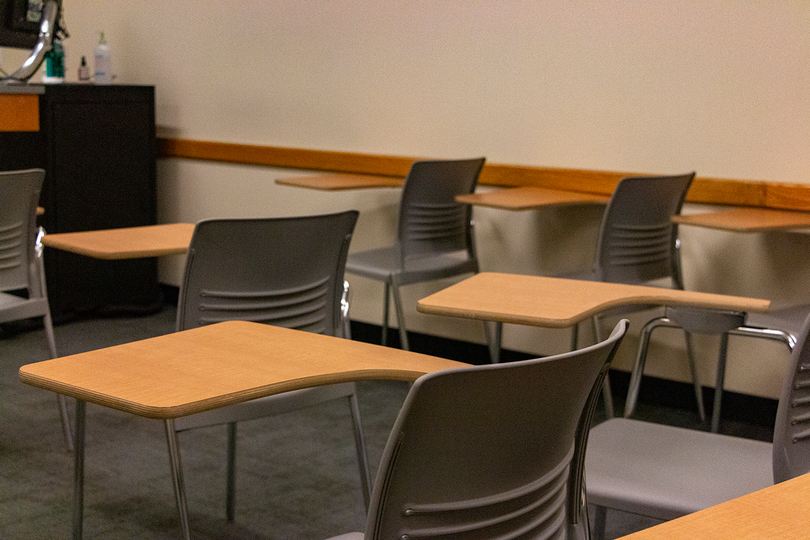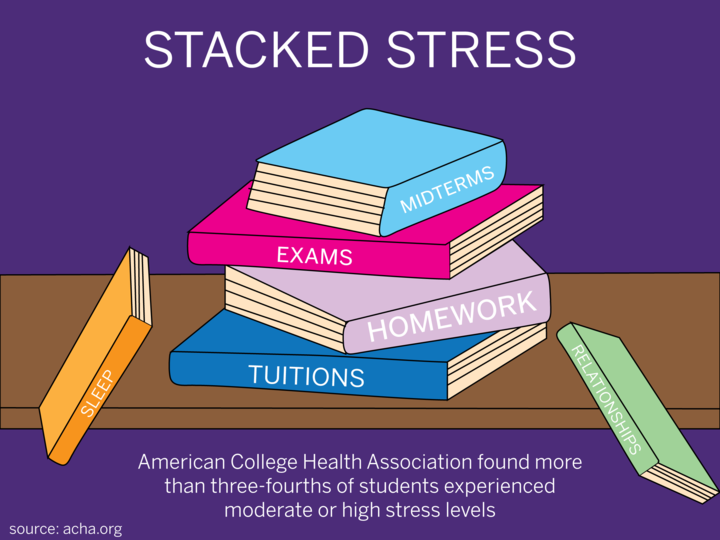Opinion: My project-based education exposes flaws of college test culture

Our columnist attended a test-free high school, which makes her upcoming midterm exams tougher. She argues student success shouldn't be measured solely on test-taking skills, but rather by semester-long measurements of growth. Francis Tang | Daily Orange File Photo
Get the latest Syracuse news delivered right to your inbox.
Subscribe to our newsletter here.
Growing up, I attended a high school reliant on project-based learning, a system without tests and homework. When I tell people about my high school, a common response was that it was “fake,” jaws often dropping to the floor.
Now, as I approach my third round of midterms as a political science student at a private university, I’m beginning to understand this culture shock.
I wasn’t prepared for my education to be reliant on tests and copious amounts of homework instead of genuine learning, a trend that is undoubtedly set by the early education system. Students take around 112 standardized tests between kindergarten and 12th grade, not including in-class tests or quizzes, according to a Council of the Great City Schools study.
When the stakes get higher at the collegiate level – and even just before it with Advanced Placement, ACT and SAT – the impacts are detrimental beyond academics.
The stress required to perform well impacts mental health across the educational spectrum. A study conducted by the University of Michigan found 15% of national college students have considered suicide, 37% reported symptoms of anxiety and 44% of depression. A study out of Stanford University found that 56% of students report homework as a primary stressor.

Ilyan Sarech | Design Editor
The amount of time spent outside of class studying for these tests and completing homework takes students away from involvement in extracurricular activities.
Centering students’ worlds around academics, leaving no room for other experiences, overlooks essential supplemental skills the college provides, sacrificing some of the most valuable parts of higher education for the sake of efficiency and meeting requirements.
This ignores the fact that no test can inspire or measure the soft skills students need to succeed. Really, tests do just the opposite by demanding memorization over effective understanding and failing to properly educate.
In fact, I would argue that the heavy emphasis on testing performance decreases a student’s success in college as they seek out the “easy A” classes rather than those that spark interest and foster those supplemental lessons.
By basing course load on that “easy A” mindset rather than what is of interest or will provide life skills, universities fail students by not providing them with the freedom and knowledge to identify their passions and stand up for them.
When students are given extreme amounts of work, they are also more inclined to cheat, taking shortcuts on assignments that might have the potential to teach them to balance their workloads.
With a more expansive measurement of success, students could take classes that fit their passions and interests while still pursuing classes necessary for their degree. They should do this without fear of failing, exhausting themselves or sacrificing academic integrity to pass.
Assessing students by the growth they demonstrate throughout the year would create an individualized assessment, which is done based on how much you have developed your skillset rather than being based on how well you can memorize information.
This would lessen the comparison that happens between students and their test scores while also providing them with adequate time outside of class to discover their passions and get involved on campus. There’s no doubt that we should have to prove what we are getting out of classes, but that system requires intense revamping to be effective evidence of learning.
Choosing to adopt a more free-thinking and passion-based approach to learning can change the goal of education from one of getting good grades to finding passions, making change and creating leaders, made possible only by genuine learning.
Ally Price is a sophomore political science major. She can be reached at aprice09@syr.edu





